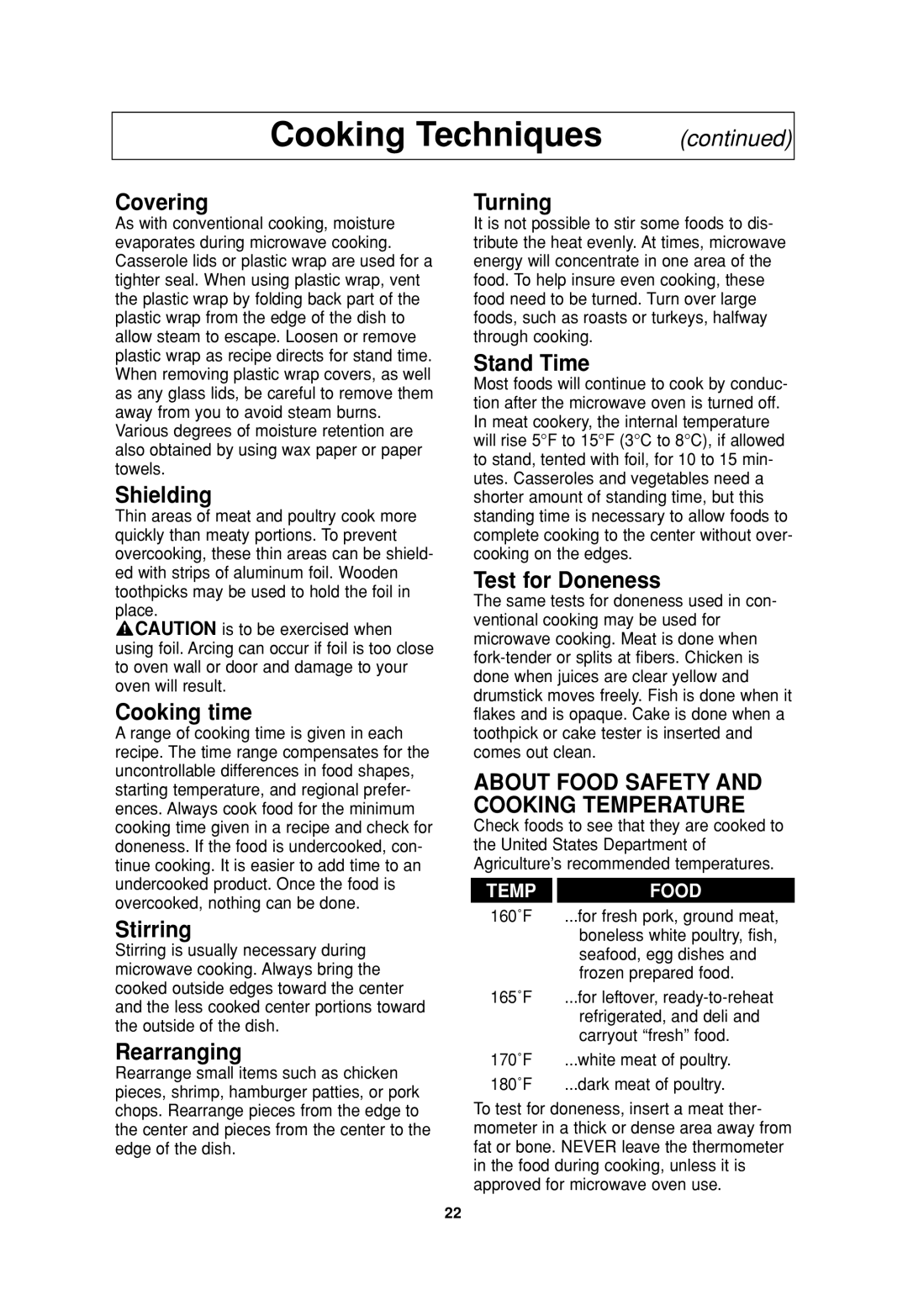NN-T664SF specifications
The Panasonic NN-T664SF is a sleek and versatile microwave oven that combines modern design with advanced cooking technology. This model is specifically tailored for those looking to enhance their kitchen experience with reliable performance and stylish aesthetics. With a capacity of 23 liters, it offers ample space for a variety of dishes, making it a practical addition to any household.One of the standout features of the NN-T664SF is its Inverter technology. Unlike traditional microwaves that use a pulsing on/off method to cook food, the Inverter technology provides a continuous stream of microwave energy. This ensures even cooking and defrosting, preventing hot and cold spots in your meals. This technology is particularly beneficial for delicate tasks like melting chocolate or defrosting meat, where precise temperature control is essential.
The microwave also boasts a range of auto-cook programs that take the guesswork out of meal preparation. Users can choose from a variety of modes tailored for different types of food, including popcorn, baked potatoes, and more. With the touch of a button, the NN-T664SF automatically sets the appropriate time and power level, allowing for a hassle-free cooking experience.
The design of the NN-T664SF is both functional and aesthetically pleasing. Its sleek stainless steel finish fits well with contemporary kitchen decor, while the easy-to-read LED display and intuitive control panel make operation straightforward. Additionally, its compact size ensures that it doesn't take up too much counter space, making it ideal for apartments or smaller kitchens.
Another significant characteristic is the child safety lock feature, which prevents unintended use, giving parents peace of mind. The turntable system found within the oven guarantees that heat is evenly distributed throughout the food, ensuring thorough cooking every time.
Overall, the Panasonic NN-T664SF microwave oven is designed for efficiency, ease of use, and style. With its advanced Inverter technology, user-friendly features, and elegant design, it stands out as a reliable appliance that can elevate your cooking and reheating tasks, making it an excellent choice for any modern kitchen.

